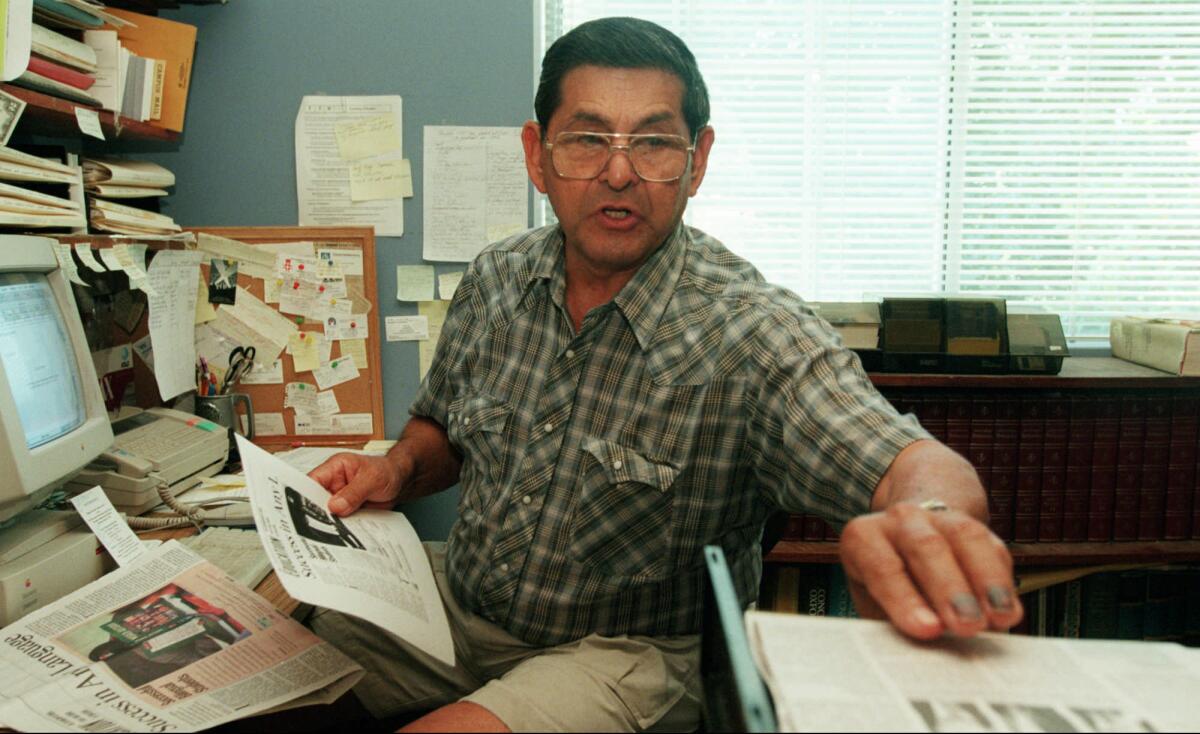Letters to the Editor: A teacher’s appreciation of Julian Nava, trailblazing educator and politician

- Share via
To the editor: On my first day as research assistant for Julian Nava, a bulletproof vest hung in his college office. He had received death threats as the Los Angeles Unified School District’s first elected Latino board member. (“Julian Nava, trailblazing L.A. politician and U.S. ambassador, dies at 95,” July 30)
With this image, I was ushered into the world he straddled.
Born in East L.A., Nava was advised to become a mechanic. After the Navy opened his eyes to the demonstrable equality of the human races, he pursued higher education, eventually earning a doctorate at Harvard University. He chose a career as a professor.
Having personally navigated a rigged system, he did not take the firebrand path. He remained inside that system, pulling others forward, while he pressed for changes such as equal use of educational resources and equal ethnic representation among decision makers. His own life taught him that education is the great equalizer.
Nava demonstrated how to empower others, and as a teacher, I am grateful for his mentoring.
Michelle Koetke, Newbury Park
..
To the editor: Gustavo Arellano left out an interesting anecdote about Nava.
In the early 1930s, Los Angeles County was operating a policy of sending Mexican immigrants and their families to Mexico, providing tickets on a series of repatriation trains across the border. Nava, 8 years old at the time, was going with his family on one of those trains.
Just before the family was to leave, Nava came down with appendicitis. By the time he recovered, the family had changed their mind about returning to Mexico.
Had Nava not had the appendicitis attack, his subsequent career, as described in Arellano’s obituary, would have been dramatically different.
Abraham Hoffman, Woodland Hills
The writer teaches history at Los Angeles Valley College and is author of the book, “Unwanted Mexican Americans in the Great Depression: Repatriation Pressures, 1929-1939.”



